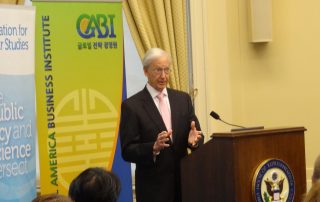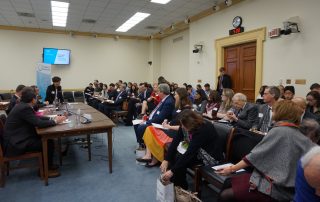At present, dialogue on nuclear technology in Washington, DC has tended to focus on issues related to nuclear materials security, nonproliferation, and arms control issues, rather than nuclear power. As a result, the policy community in Washington tends view nuclear power technologies with some skepticism. Given this environment, it is GABI’s commitment to promote, educate, and enhance the understanding of the vital role of nuclear power from the perspective of ensuring energy security, reliability and sustainability.
GABI-FNS Capitol Hill Briefing on the Versatile Test Reactor (VTR).
Currently, access to fast spectrum irradiation capabilities for general purposes is very limited; at present, Russia is the only country that possesses fast neutron testing capabilities. Thus, the development of a fast neutron testing facility is important for the U.S. to maintain its global nuclear technology leadership. In accordance with the Nuclear Energy Innovation Capabilities










